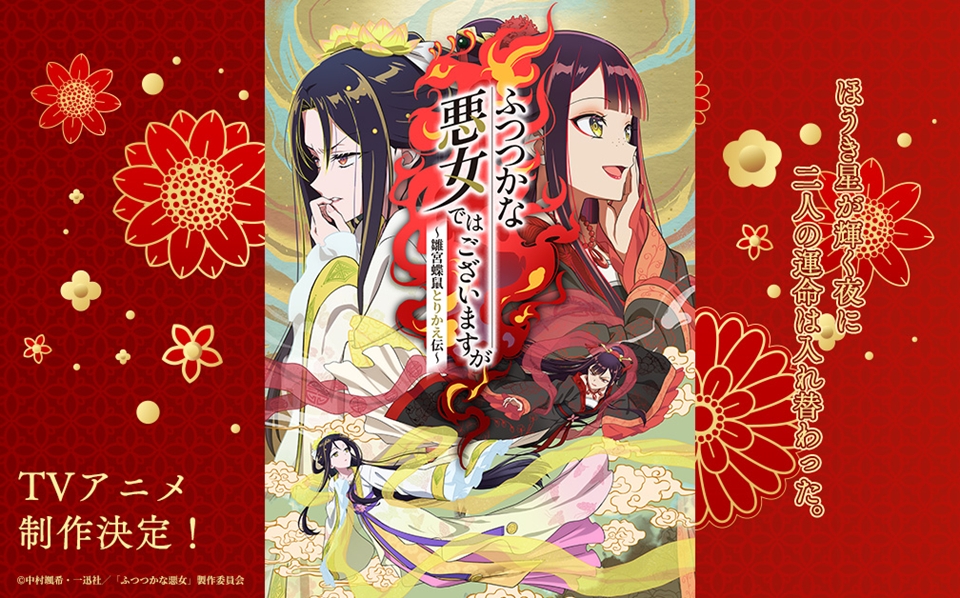After the To Your Eternity panel at Anime NYC, Crunchyroll News had the privilege of catching up with Reiji Kawashima (Fushi) and Kenjiro Tsuda (The Beholder) to discuss the upcoming third season, scheduled to premiere on October 4 on Crunchyroll. Stepping into an entirely new era, Fushi finds himself in a modern world shaped by centuries of loss, growth, and transformation. We spoke with both voice actors about what it was like to bring this journey to life — how their characters evolved throughout the first two seasons and how the experience shaped them personally as well. Firstly, welcome to New York! How has your time been, and has there been anything that you've really been looking forward to while you are here Reiji Kawashima : Finally, I'll get a chance to see a Broadway show tonight, hopefully. So, I'm excited about that. Which show will you go see? Kawashima : Most likely Aladdin ! Tsuda-san mentioned yesterday he went to see a Broadway show and I thought I wanted to go see one too. Kenjiro Tsuda : This is my first time in New York, so I would like to visit many places, like Broadway and museums. I was just sightseeing the Brooklyn Bridge and the Statue of Liberty. That's amazing. Well, I'm glad that you're having a good time! As we’ve seen, there are a lot of changes upcoming in Season 3 of To Your Eternity . Looking back on working on the show, was there a particular moment, emotionally or technically, that left a really strong impression on you, maybe a scene that still lives with you today? Kawashima : Fushi, being immortal, outlives his human friends naturally, but he has to continue living. Each reunion with lost friends was really the emotional climax for me. Tsuda : The scene that left the biggest impression on me was from Season 1, Episode 1. It’s the process leading up to the birth of who Fushi really is. It’s very memorable. The boy appears but dies — you think the boy is the protagonist, but he dies. Then this orb, which was a life force, grows into the character of Fushi. It is such an original, unique setting that I had never seen before, and it really characterizes what kind of story the series is. The show touches deeply on what it means to be human. How has voicing Fushi and The Beholder changed how you think about life, death, or even connection with other people? Kawashima : The story is about Fushi pursuing learning and discovering what happiness is, and it got me thinking about my personal happiness. In the first two seasons, Fushi really wants to avoid pain because he doesn’t like it. But it made me realize that feeling anxiety and struggles, because there are negatives, there can be positives. There cannot be positive without the negative. Experiencing daily struggles helped me see that these difficulties are just a spice that makes the positive aspects of life more enjoyable. Tsuda : This story tells a story of life, and it makes me reflect on what my life is about. Fushi is immortal, which raises questions about what death means for us. We see many deaths in the series, and they give depth to the story. Thinking about death helps us think about how we should live our lives. Fushi's journey — you start as a stone from this orb, to a wolf, to a deeply empathetic human being. You learn how to be human. How did you make the shift in your voice for each of these physical and emotional transformations? Kawashima : I definitely played a lot of animals, especially in Season 1. For example, when Fushi becomes a wolf, I considered what a wolf’s vocal cords are like and how the body helps to resonate the voice. I apply this to wolf’s roar and howl and how that would sound in a human body. When it comes to Fushi’s growth and reflecting that in my acting, I focus on how humans subconsciously learn and connect to consciousness. For example, I see this yellow, square thing and link to my prior knowledge and recognize it’s a notebook. And when you have a cold and each step is painful, you are relearning to walk. We’re doing that subconsiously when we learn something new. I try to pay attention and replicate that learning process when portraying Fushi. The Beholder is often emotionless, but there are flashes of concern towards Fushi. How do you voice someone so omnipotent, but quietly emotional? Tsuda : Striking the balance of a subtle emotional stance is key. The Beholder’s concern for Fushi may not even be emotion; it may be the Beholder fulfilling the role of an observer. Maybe it's the curiosity that he has, so we're not even sure he’s emotional at all. I try not to overplay his emotions. I record the way I see fit, and the staff tells me if it’s enough. That’s how I maintain balance. In Season 3, Fushi steps into a modern world after centuries of grief and growth. How do you adapt his voice now to reflect his experiences and memories while in this drastically different world? Kawashima : Even in the modern world, Fushi wakes up with memories and experiences from the past. His goal has been to find peace. When he wakes up in the modern world, he finds peace. Initially, he appreciates and enjoys this peace with friends, because there are no nokkers anymore. Gradually, he realizes the modern world isn’t really peaceful. The physical pain may not be there anymore, but the emotional pain may be even greater. But by interacting with the people in this modern world setting, his goal of making people’s wishes come true is still true. For both of you, what originally drew you to this role of To Your Eternity ? You both played a wide array of characters, different heroes and villains. What drew you to portray this character? Kawashima : Creating a character from scratch, as with Fushi, and developing him over the story was incredibly interesting. Usually, a character’s personality and background are already established, but here, the process of building Fushi’s growth was part of the performance itself. Usually, when you play a character, the personality is already established and you act alongside it. Being able to create a character from scratch, because that's where this character starts, the development of the character, how he grows in the story. Creating the character on my own was really interesting as an actor. It helped me think about how I would bring Fushi to life. Tsuda : The role of The Beholder is such an interesting character. He plays a role, but he's a narrator as well, so he kind of exists in the story, but he also exists outside of the story, objectively observing what happens. That is a kind of character that I've never played before, and it's such a unique position to have been placed in a narrative. Another unique thing about The Beholder is that when you play a character as a voice actor, it is my job to create the emotion of the character. For The Beholder, it's more about the air or the gravity of the world I create through world setting. Has there been any part that has been particularly challenging for you? Kawashima : Fushi experiences many departures and goodbyes, each time he is filled with pain. Portraying that pain while allowing the audience to share Fushi’s is a delicate balance. I performed live dubbing for episode one, which required conveying the boy’s pain in front of an audience. That is challenging every time I record. Tsuda : I get to speak a lot, especially in the opening sequence, and there's nothing dramatic or cinematic about what I say. It's an intro, and it's supposed to set up the story and the world view, so it has to be calm and quiet. But there's something very dramatic about that calmness and trying to reflect it in the show. What do you hope Season 3 leaves viewers with, and is there a message that you would like to tell the fans of To Your Eternity for the new season? Kawashima : There’s a new character, Yuki Aoki, and the modern setting brings comedic elements as well. You will definitely feel a new atmosphere in the series. The story will feel a lot more accessible because it happens in the modern world. The lively, bright moments and comedic relief are a juxtaposition to the pain and the heavy philosophical part of the story. I hope that Season 3 will resonate with people. There’s still time to watch seasons one and two, so please be excited for Season 3! Tsuda : When the story started in Season 1, it was a ‘Once Upon a Time’ type of story. It happened so long ago, and the story and the narrative were so removed from where we are. However, over time, the story caught up to the real world. It's an extension of the world we live in now. Initially, it's going to feel that something is off because the story and characters were time-wise so far removed, but now it’s here. I think you can enjoy and look forward to how “weird” the beginning of the new season feels.


